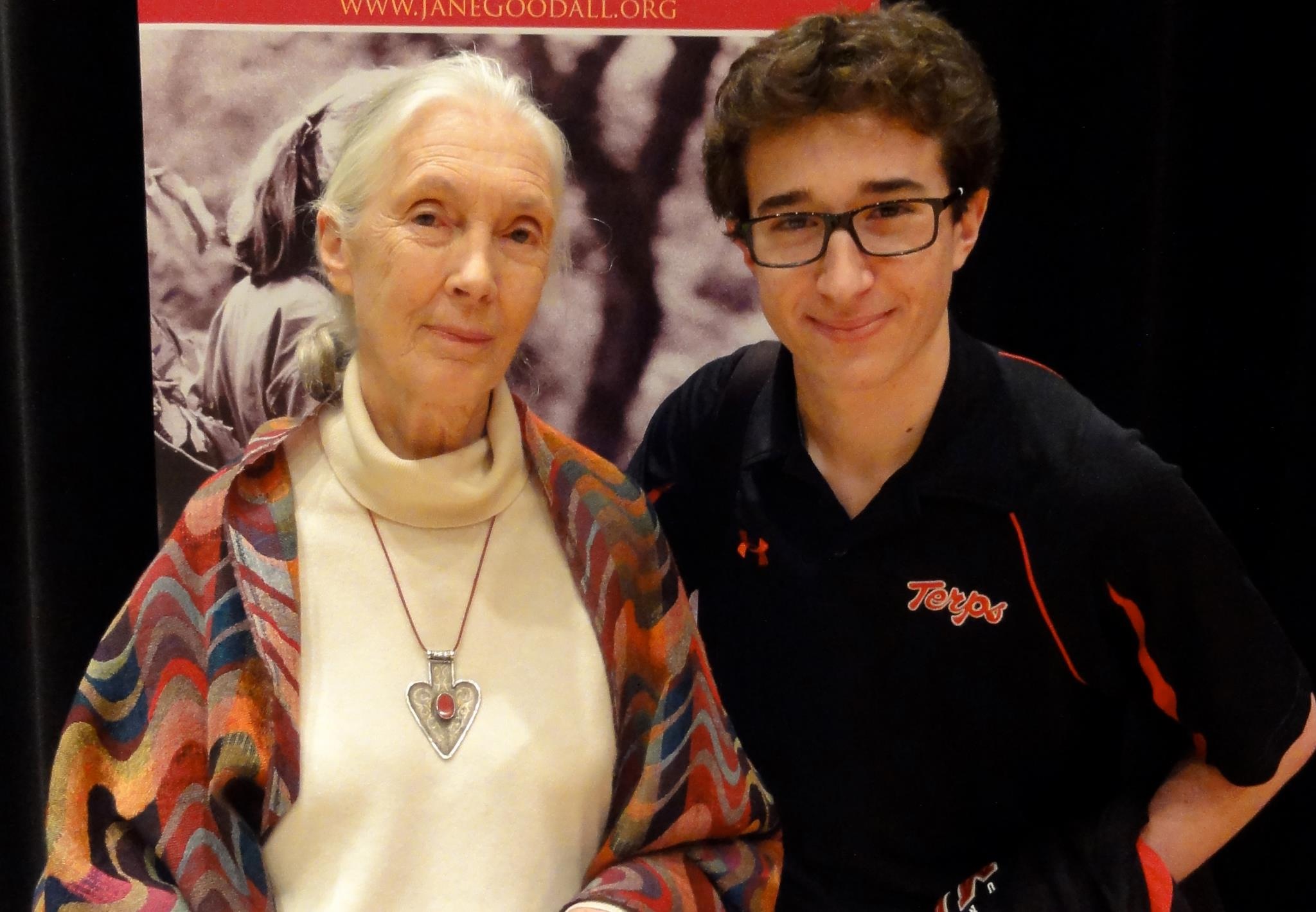An Interview With
Dr Jane Goodall
October 13, 2012

In July 1960, at the age of 26, Jane Goodall traveled from England to what is today Tanzania and bravely entered the little-known world of wild chimpanzees. She was equipped with nothing more than a notebook and a pair of binoculars. But with her unyielding patience and characteristic optimism, she won the trust of these initially shy creatures. She managed to open a window into their sometimes strange and often familiar-seeming lives. The public was fascinated and remains so to this day. Today, Jane’s work revolves around inspiring action on behalf of endangered species, particularly chimpanzees, and encouraging people to do their part to make the world a better place for people, animals, and the environment we all share." http://www.janegoodall.org
|
| Jane Goodall |
You can have the seat with the most light. This is forest light, my preferred light.
|
| Spencer |
Perfect. I often find that science classes today are structured around presenting facts, theories and answers to questions. And you certainly have been a pioneer on challenging the worldviews and even challenging the question. How can we encourage students of science to ask questions and challenge the norms in a field that is often focused on simply seeking answers?
|
| Jane Goodall |
Well, first of all, you know, we are trying to work at a level of changing curriculum… But I find that just about all students who join our institute’s group become empowered and are much more likely to ask those questions, and have support from their peers, you know?
|
| Spencer |
Absolutely.
|
| Jane Goodall |
So it’s empowering you. And at the same time, there is a movement to try and get science more hands-on and learning for yourself. You learn much better that way. You learn much better if you actually do something. I hated chemistry, I didn't do it for long, but I love doing experiments.
|
| Spencer |
Sure, the lab portion is my favorite too.
|
| Jane Goodall |
The lab part of it was enormous fun.
|
| Spencer |
You spoke today also about the moon and how you had to say, stop and look at the wonder of its beauty. Do you find that as we answer more questions, gather more molecular data, that nature loses its wonder or gains more wonder?
|
| Jane Goodall |
Well, to me it gains more, because it’s all so amazing. I just finished a book, and it’s about the wonderful, magical green world of plants, trees, forests, gardens, botanical gardens, arboretums, plants for healing, plants for hope.
And then it had to go into the history of it, and that took me into the plantations and the slave trade, and the slaves. It’s horrible. And then as we slowly developed what we now call conventional farming – when did it become conventional to poison the land? You know? Horrible.
And along comes along genetically modified foods, and the movement is growing and growing against Monsanto. And they slap lawsuits on everybody. I expect I’m finished because I’ve got a whole chapter on that.
But they are so, so horrible what they’re doing. And there are just some experiments coming out now that show the expense of the damage that they can do.
|
| Spencer |
You often speak of your tree. One of Barbara Walters’ most famous moments was a questions she asked Katherine Hepburn. So I have to ask the same question. If you were a tree, what type of tree would you be and why?
|
| Jane Goodall |
I would be one of those one-thousand, two-thousand-year-old oak trees, just because they’re so – I don't know, they’re planted so solid and they don’t get terribly tall, but I find them very beautiful. Probably because I grew up with them, and the pigs eating the acorns in the oak woods and everything. |
|

